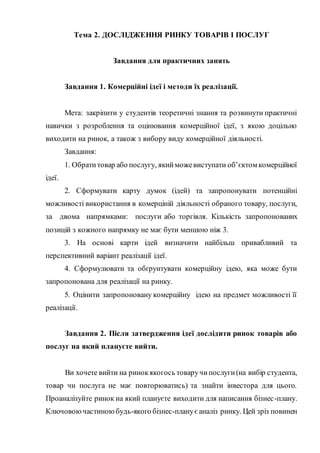ChatGPT And OpenAI: The FTC's Probe And Its Potential Outcomes

Table of Contents
The FTC's Concerns Regarding ChatGPT and OpenAI
The FTC's investigation into OpenAI centers around several key areas of concern, each with significant implications for the future of AI regulation.
Data Privacy Violations
ChatGPT's data collection, usage, and protection practices are at the heart of the FTC's concerns. The sheer volume of data processed by ChatGPT, including potentially sensitive personal information, raises questions about compliance with existing data privacy laws like the Children's Online Privacy Protection Act (COPPA) and the General Data Protection Regulation (GDPR).
- Concerns about the collection of sensitive personal information: ChatGPT's ability to learn from vast amounts of text data raises concerns about the unintentional or intentional collection of sensitive information, including personal details, medical records, and financial data.
- Lack of transparency regarding data usage practices: Critics argue that OpenAI lacks sufficient transparency regarding how user data is collected, used, and stored. This lack of clarity makes it difficult for users to understand the potential risks associated with using ChatGPT.
- Potential for unauthorized data sharing or leakage: The potential for data breaches or unauthorized sharing of user data is a significant concern, especially given the sensitive nature of the information that ChatGPT processes.
Deceptive Trade Practices
The FTC is also investigating whether OpenAI has engaged in deceptive trade practices by making misleading claims about ChatGPT's capabilities or safety. The potential for inaccurate, biased, or harmful outputs raises significant consumer protection concerns.
- Concerns about the potential for AI-generated misinformation: ChatGPT's ability to generate human-quality text raises concerns about its potential for creating and spreading misinformation. This is particularly concerning given the ease with which such information can be disseminated online.
- Questions regarding the accuracy and reliability of ChatGPT's responses: The accuracy and reliability of ChatGPT's responses are not always consistent, potentially leading to inaccurate or misleading information being presented to users.
- Potential for harm caused by misleading or biased information: The use of biased or inaccurate information generated by ChatGPT can have real-world consequences, potentially leading to financial losses, reputational damage, or even physical harm.
Consumer Protection Issues
The FTC's investigation also considers how ChatGPT's use might lead to harm to consumers. The potential for misuse of the technology, particularly in high-stakes decision-making scenarios, is a significant concern.
- Risks associated with the use of ChatGPT in high-stakes decision-making: The use of ChatGPT in areas such as financial advice, medical diagnosis, or legal counsel presents significant risks if the AI provides inaccurate or misleading information.
- Potential for malicious actors to exploit ChatGPT's capabilities: Malicious actors could potentially exploit ChatGPT's capabilities to generate convincing phishing emails, create deepfakes, or spread propaganda.
- The need for robust safeguards to protect consumers from harm: The FTC is likely to examine whether OpenAI has implemented sufficient safeguards to protect consumers from the potential harms associated with using ChatGPT.
Potential Outcomes of the FTC Investigation
The FTC investigation could have several significant outcomes, shaping not only OpenAI's future but also the broader AI industry.
Fines and Penalties
If OpenAI is found to have violated laws related to data privacy, consumer protection, or deceptive trade practices, it could face substantial financial penalties.
- Range of possible fines based on the severity of violations: The fines could range from relatively small amounts to potentially billions of dollars, depending on the nature and extent of the violations.
- Potential impact on OpenAI's financial stability: Significant fines could severely impact OpenAI's financial stability and its ability to continue its research and development efforts.
- Precedential impact on future AI development: The outcome of the investigation could set a precedent for future regulation of AI technologies, influencing how other companies develop and deploy AI systems.
Regulatory Changes
The FTC investigation could lead to significant regulatory changes impacting the entire AI industry.
- New data privacy regulations specifically for AI systems: The investigation could result in the development of new regulations specifically addressing the unique data privacy challenges posed by AI systems like ChatGPT.
- Increased transparency requirements for AI algorithms: The FTC might push for increased transparency regarding the algorithms used in AI systems, allowing for greater scrutiny and accountability.
- Establishment of industry standards and best practices: The investigation could lead to the development of industry standards and best practices for the responsible development and deployment of AI technologies.
Changes to ChatGPT and OpenAI's Practices
Regardless of the outcome of the FTC investigation, OpenAI is likely to make significant changes to its practices.
- Implementation of stronger data protection measures: OpenAI will likely strengthen its data protection measures to ensure better compliance with data privacy laws and regulations.
- Increased transparency about data collection and usage: OpenAI is likely to improve the transparency of its data collection and usage practices, providing users with more clarity and control over their data.
- Development of more robust mechanisms for user consent and control: OpenAI might implement more robust mechanisms for obtaining user consent and providing users with greater control over how their data is used.
Conclusion
The FTC's investigation into ChatGPT and OpenAI represents a critical juncture for the future of artificial intelligence. The potential outcomes, from hefty fines to sweeping regulatory changes, highlight the urgent need for responsible AI development and deployment. This investigation's conclusions will significantly impact not only OpenAI but also the entire AI industry, setting a precedent for data privacy, consumer protection, and ethical considerations in generative AI. Staying informed about the evolving situation surrounding the ChatGPT and OpenAI FTC probe is vital for anyone invested in the future of AI and its ethical application. Understanding the potential ramifications is key to navigating this swiftly changing technological landscape.

Featured Posts
-
 U S Penny Phase Out No More Pennies In Circulation By Early 2026
May 24, 2025
U S Penny Phase Out No More Pennies In Circulation By Early 2026
May 24, 2025 -
 Euro Sterker Kapitaalmarktrentes Klimmen Live Update
May 24, 2025
Euro Sterker Kapitaalmarktrentes Klimmen Live Update
May 24, 2025 -
 Konchita Vurst Ta Yevrobachennya 2025 Chotiri Potentsiyni Peremozhtsi Za Yiyi Versiyeyu
May 24, 2025
Konchita Vurst Ta Yevrobachennya 2025 Chotiri Potentsiyni Peremozhtsi Za Yiyi Versiyeyu
May 24, 2025 -
 Dylan Dreyers Weight Loss Journey Impact On Nbc Colleagues And Viewers
May 24, 2025
Dylan Dreyers Weight Loss Journey Impact On Nbc Colleagues And Viewers
May 24, 2025 -
 Stitchpossible Weekend Box Office 2025 Showdown Could Shatter Records
May 24, 2025
Stitchpossible Weekend Box Office 2025 Showdown Could Shatter Records
May 24, 2025
